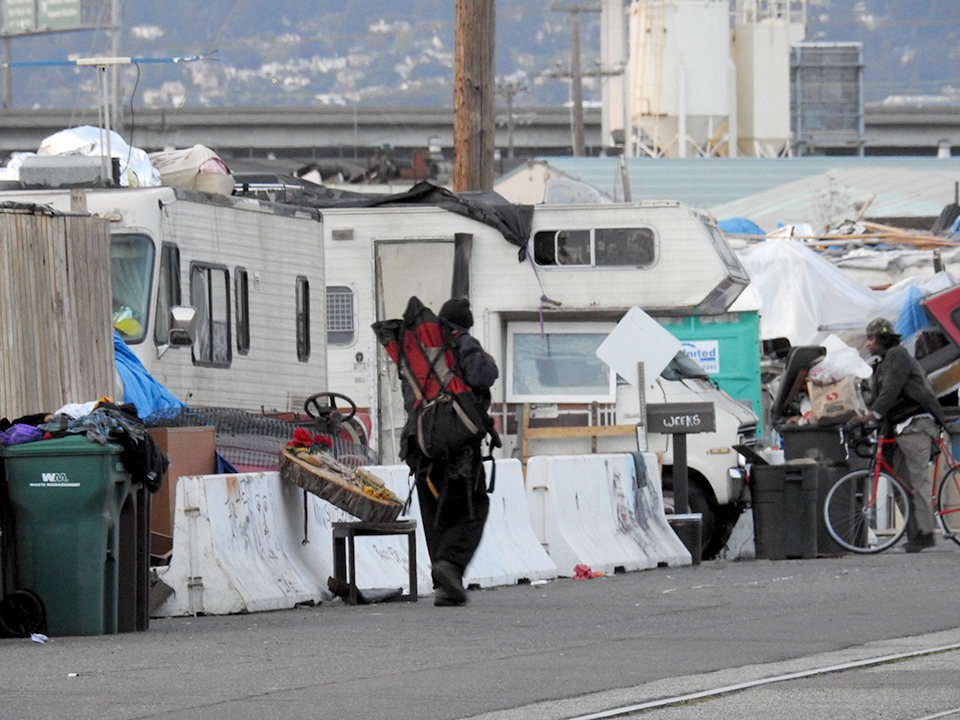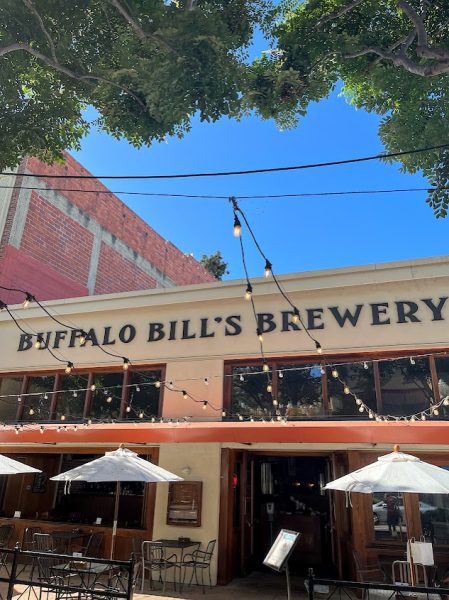Oakland homeless camps continue to grow
In recent decades, Oakland’s homeless population have grappled with rising housing costs coupled with scarce affordable options. The growing number of homeless people continues to rise, according to EveryOne Home’s survey conducted in January. The bustling tent cities have put pressure on Oakland officials for a solution to safety concerns.
Tent City Residents
Public Works’ EveryOne Home program reported 5,629 homeless people in January. The local non-profit also concluded median rents increased 25 percent since 2015, while median household income increased by 5 percent.
Garbage piles against tents that line the streets in clusters, taking up sidewalks under freeway overpasses all over the city. Homeless people have since added gas grills to cook on the side of the road. Garbage cans overfill, spoiling in the sun. The piles of debris spill onto the roadway under the 27th Street / West Grand Ave overpass ramp exit.
“Budgets, proposals, and meetings happen,” said Hannah Supinger. “We don’t want to live under the rats, trash, and syringes — all exposed. We want out from under here… out of public view.”
Life on the “main block”–as she refers to it–comes with a different set of struggles. A lack of security and safety, as well as no legal documents like identification or social security cards. Hannah and her husband have lost important personal identifying documents since living under the 980 freeway. Hannah frequently witnesses passer-by’s dumping garbage from passing cars.
Bryan and Hannah Supinger, 34, struggle to access emergency housing services, and are apprehensive about receiving help after their first experience seeking assistance at a the nonprofit where The Supinger’s were residents at 2551 San Pablo Avenue, where a deadly building fire killed four, and injured six more in March.
“Some have accepted this life, and have built their lives [here], but I can’t count how many in-take applications we submit…and nothing comes from it,” said Bryan. “I believe they are just meeting their [state] funding quotas… it is never going to stop if there are no preventative measures,” said Bryan.
Bryan hopes for more city resources to be used for centers where homeless people can be housed and receive mental health care as needed.
Hannah told The Pioneer she thinks the city should have sanctioned camping areas for those living on the street.
“I still hope it can change. Operation Dignity comes by– I would say about twice,” homeless Oakland resident Marcus Emery said. “I’ve been on their waitlist about five months now. They got all my background checks and housing stuff. How come they can’t come up here and give me information on my status?”
Operation Dignity is a nonprofit organization and outreach program created by the Public Works department to help people in the community through a variety of services including housing placement.
Emery pointed to the middle of the the camp at a street sign and said he doesn’t go past it because of the piles of trash, citing pests as a primary concern. Emery has lived on the “main block” for approximately one year.
The city has not provided portable public restrooms,or dumpsters in the area, which Emery believes could alleviate the situation.
Measure KK Update
The Oakland City Council voted to secure $14 million via Measure KK last November for the purchase of dedicating one to two prospective properties to serve Oakland’s homeless residents who are in need of transitional housing. Funding to assist with job placement for future residents was also included in this measure.
Public Works’ EveryOne Home program reported 5,629 homeless people in January. The local non-profit also concluded median rents increased 25 percent since 2015, while median household income increased by 5 percent.
Fifty percent of all survey participants stated they lived in Alameda County for at least 10 years. Median rents have increased 25 percent since 2015, while median household income increased by only 5 percent.
Fires
Fire officials indicate fires at several tent cities are usually speculated to be accidental; however, arson fires are taken into strong consideration. Many residents cook within tents or in close proximity of other extremely flammable items.
The 5th and 6th street camp was recently affected by a suspected arson fire early Sunday on July 23 at 1 a.m. A man was arrested in connection to the fire. His identity was withheld, and he was later released.
According to Oakland Fire Department data and stats released to KQED, over 50 encampment fire incidents have been logged this year through mid-June.
The infamous Oakland Ghost Ship warehouse fire prompted a revamp of fire code safety inspection referrals.
An investigation by the Bay Area News Group concluded fire inspectors failed to follow-up on hundreds of commercial and residential buildings referred for inspection in Oakland.
879 properties were referred to the Bureau of Fire Prevention for fire code issues since 2011, where only 21 percent of flagged properties were subsequently inspected equating to a 79 percent ‘failure-to-inspect rate,’ according to the investigation.
According to CNN, Oakland’s Ghost Ship warehouse was not inspected in the last 30 years.
“We do not inspect buildings, we inspect businesses, so if there was any indication of an active business we would go and … inspect. In this case, there was no indication from inspectors that this was an active business,” said Teresa Deloach Reed at a press conference. The former Oakland Fire Chief retired in May, only months after the deadly fire.
Derick Almena, the leaseholder, and Max Harris, the tenant, are in custody charged with 36 counts of involuntary manslaughter and facing up to 39 years in prison.
Alameda County Judge Kevin Murphy recently lowered the bail for Derick Almena from $1.08 million to $750,000, according to NBC Bay Area.








